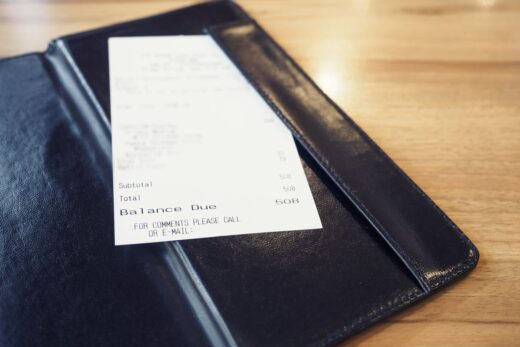On July 1, Senate Bill 478, the “Honest Pricing Law” or “Hidden Fees
Statute,” law goes into effect. Gov. Gavin Newsom signed the bill in
October.

The law applies to the sale or lease of most goods and services that are
for a consumer’s personal use. The law does not apply to the purchase or
lease of goods or services for commercial use.
As reported then, this legislation makes it an unlawful business
practice to advertise, display, or offer a price for a good or service
that does not include all mandatory fees or charges, which a customer is
required to pay as part of the transaction.
The bill applies to many businesses, e.g., event tickets, short-term
rentals, hotels, restaurants, and food delivery.
The intent is to eliminate the use of hidden fees through transparency.
Businesses can charge whatever they want. But they no longer can
advertise a lower price to attract customers, then add mandatory
separate fees to the final cost for the good or services. According to
the California Department of Justice, it is not sufficient to merely
identify (whether in bold or smaller print) these separate fees which
will be automatically applied to the customer’s bill or invoice.
Optional fees and charges, such as for premium movie channels in one’s
cable TV subscription, or for gift-wrapping an online purchase, can
still be used.
In its press release, reminding the public of the coming implementation
of the Hidden Fees Law, the State’s Department of Justice stressed, “SB
478 has no effect on prices; the law does not ask businesses to charge
less, the law does not require businesses to charge more. The Honest
Pricing Law works to empower consumers by arming them with accurate
information upfront, so that they can compare prices between merchants,
and creates an equitable marketplace for businesses to compete.”
“The law is simple: the price you see is the price you pay. Laws work
when everyone can comply,” California Attorney General Rob Bonta stated
in the release.
Optional costs or fees are not required to be included in the item or
service’s stated price. Mandatory fees must be included. Late fees,
extra baggage fees, or upgrading a seat do not have to be included in
the price because these are optional and not applicable to all
customers.
Although it applies to a variety of businesses, especially online
purchases, the changes in restaurant business are likely to be one of
the most notable seen by diners or shoppers. For food establishments,
ads or menu prices must be the total price that customers will have to
pay for the good or service.
Simply disclosing, at the bottom of a menu, that additional mandatory
fees will be assigned to the purchase price is not sufficient. The DOJ
clearly states, “The price listed or advertised to the consumer must be
the full price that the consumer is required to pay.”
For example, currently a menu may list an item, e.g., salad or entrée,
as $20 and then apply a 5% fee for health costs to the final bill. After
June 30, this menu item should be listed as $21.
However, the restaurant industry disputes the DOJ interpretation and
predicts the DOJ view will have negative effects for the industry.
“Many restaurants for decades have used auto gratuity instead of tips,
(an approach believed to be fairer and more equitable), and restaurants
have added service charges to help offset mandates like San Francisco’s
Health Care Security Ordinance. Ending the ability for restaurants to
use service charges (even if clearly and legibly listed on their menus)
will have a very negative impact on the survival of this still
struggling industry,” said the Golden Gate Restaurant Association.
This law does not affect tips or gratuities left by customers, since
they are not mandatory. Gratuity payments that are not voluntary must be
included in the list price.
Discounts are not prohibited. They remain a valid and important part of
doing business. Offering a lower price will not be illegal. The law just
prohibits advertising a price that is less than what the customer will
be charged for the item.
According to DOJ, “SB 478 prohibits advertising a price that is less
than what a consumer will have to pay for a good or service.
Advertisements that mention discounts – but that do not list a price –
do not violate the law.”
“Every consumer deserves honest, up-front pricing, and I’m proud to have
worked with Attorney General Bonta and Senator [Nancy] Skinner to pass a
law to help do just that,” said Senator Bill Dodd (D-Napa), co-author of
SB 478. “A consumer shouldn’t discover hidden fees made up by a business
when they pay their bill.”
However, the response to its coming implementation has not been totally
embraced. The California Restaurant Association finds fault with the
bill
In a May 9 press release said, Matthew Sutton, Senior Vice President of
government affairs and public policy for the CRA, said, “The FAQ
released by the California Attorney General’s office today is a prime
example of legislating through a press release. CRA strenuously
disagrees with the AG’s expansive interpretation of the law to outlaw
restaurant service fees.
“Courts have consistently concluded that service fees are permissible
under the Consumer Legal Remedies Act as long as they are properly
disclosed on restaurant menus. Nothing in the plain language of the bill
or legislative debate suggested an intent to change the pricing
structure for every restaurant in this state. The office’s
interpretation of the law itself is the “bait-and-switch” – suggesting
an interpretation of this new law that was never presented or debated in
the legislature, which we believe is clearly inconsistent with the
Legislature’s intent.”
“The FAQs just dropped today by the California Attorney General’s office
will create significant challenges for the restaurant industry moving
forward. . . This means that service charges, even for a long-accepted
industry practice of providing gratuity to staff, will no longer be
allowed in California.” the Golden Gate Restaurant Association said in
its press release.
“Diners will not pay less, instead they will see significant menu price
increases, which we believe will further cause them to pull back on
dining out,” the GGRA concluded.
Further, some in the legal profession believe that California’s Consumer
Legal Remedies Act may not apply to dine-in restaurant offerings, and
that menus may not qualify as “advertising” under the statute. If so, SB
478 would not apply to restaurants except for advertisements.








